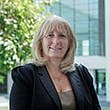How teaching attitudes dictate success
The approach your kids’ teachers take to their education can have a dramatic effect
In the 1960s, there was a landmark social experiment in the UK. The researchers, Robert Rosenthal and Lenore Jacobson, told a group of teachers that some of their pupils had demonstrated potential to become high achievers. What they didn’t tell the teachers was that the pupils had been selected completely at random.
It transpired that the selected children performed significantly better academically than their peers. This groundbreaking experiment was a testament to how, through encouragement and high expectations, the potential of each child can be significantly improved, regardless of their perceived level of talent.
The researchers also proved that the attitude of a teacher towards your child’s ability can significantly affect their chances of success.
Fiona Cottam, Principal of Hartland International School in Dubai, agrees that the quality and attitude of a child’s teacher is key to maximising a child’s potential. “We’re very lucky that we have an experienced staff group here - people who have been teaching for many years combined – and it means that they have a huge experience in terms of working with different types of young people,” she says.
We are genuinely trying to create a school that is not just forward thinking but a school in which people feel safe – safe to be able to express opinion, operate with new ideas and take risks.

“That gives them a unique ability to identify some of the key skills, characteristics and traits in young people. We then try to harness, in terms of pushing the students forward and try to capture the essence about what is unique for each individual child.”
Hartland International School has an unusually broad age range of pupils starting from the pre-school up to teenagers studying for their GCSEs. With more than 60 nationalities and a wide age gap between different pupils, the teachers’ ability to provide each child with the individual attention they need to flourish is important.
Michelle Slade, a parent of three children at Hartland, has noticed distinct improvements since she her children moved to the school two years ago. “We were at a school where the class sizes were at 29 and the children weren’t getting any attention. The teachers assessed them and gave us pointers on where the gaps were and they have all blossomed, all three of them, so we’re very happy,” she says.
Staff at Hartland are keen to point out that their school is built on the cultural foundations of a family. Children are encouraged to interact across age groups and support each other. Yet, despite the ethos of care, the school is also committed to challenging the pupils. “We want to enable their thinking for them to be able to move above and beyond the normal day-to-day,” says Cottam.
One such example of the school’s ability to identify and nurture talent is Year 9 student Ryan McDonough. Sports staff recognised this talent at swimming and Ryan has now successfully competed in regional competitions as well as enjoying the opportunity to pit his talent against an Olympic swimmer, James Goddard.
Year 6 student Jamel Lavers’ particular passion is English. “I like literature because you get to write down your imagination and creativity. My teacher, Ms Coyle, is always passionate about it and always helps me,” he says.
An innovative approach
At Hartland, kids are lucky enough to gain experience with cutting-edge technology, such as 3D printing. On one project, pupils collaborated on a challenge set by the Dubai Institute of Design and Innovation to re-design the gargour, which is a protective shelter for baby sea turtles.
This mission to identify and nurture children’s individual talent and maximise their academic success is led by the school’s principal. “We are genuinely trying to create a school that is not just forward thinking but a school in which people feel safe – safe to be able to express opinion, operate with new ideas and take risks – a genuinely warm environment and I think that does set us apart,” she says.
To learn more about the school, visit www.hartlandinternational.com or call +971 4 407 9444 / 800-HARTS (42787).
This content comes from Reach by Gulf News, which is the branded content team of GN Media.